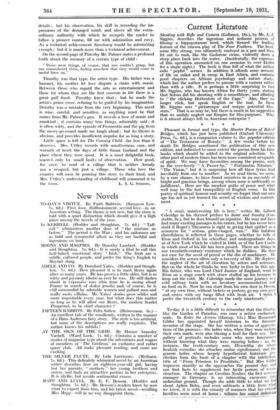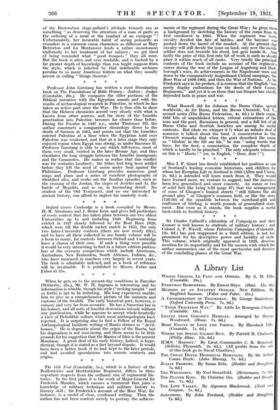To-day it is a little difficult to remember that the
theatre, like the Garden of Paradise, was once a milieu exclusively male. In Enter the Actress (Harrap, 15s.) Miss Rosamond Gilder has appointed herself historian, to the feminine invasion of the stage. She has written a series of apprecia- tions of the pioneers—the ladies who, when they were making their own mark, were also blazing a trail for their sex. Her gallery of portraits includes some who were forerunner.{ without knowing what they were running before : as, for instance, the tenth-century nun, HroSwitha (to whose freakish comedies she attaches undue significance), and the generic ladies whose largely hypothetical histrionic pro- clivities form the basis of a chapter with the infelicitous title of -" From Priestess to Prostitute." But Miss Gilder improves steadily as she approaches the present day, and can find facts to supplement her facile powers of recon- struction. The chapter on Carolina Neuber, the first actress- manager in Germany, is an interesting excursion into unfamiliar ground. Though she adds little to what we feel about Aphra Behn, and even subtracts a. little from what we know, it is with the comedy of manners that her critical faculties seem most at home : witness her sound definition of the Restoration stage-gallant's attitude towards sex as something " as deserving the attention of a man of parts as the ordering of a meal or the conduct of an equipage " ! Unfortunately, her incurable habit of seeing primarily as crusaders in a common cause characters as different as Mary -Better ton and La Montansier lends a rather monotonous uniformity to her treatment of her subject ; we get tired of being reminded what " good troupers " they all were. But the book is alive and very readable, and is backed by a far greater depth of knowledge than you might suppose from the style, which is infected by that indefinable archness peculiar to so many American writers on what they usually ,persist in calling "things theatric."



































 Previous page
Previous page